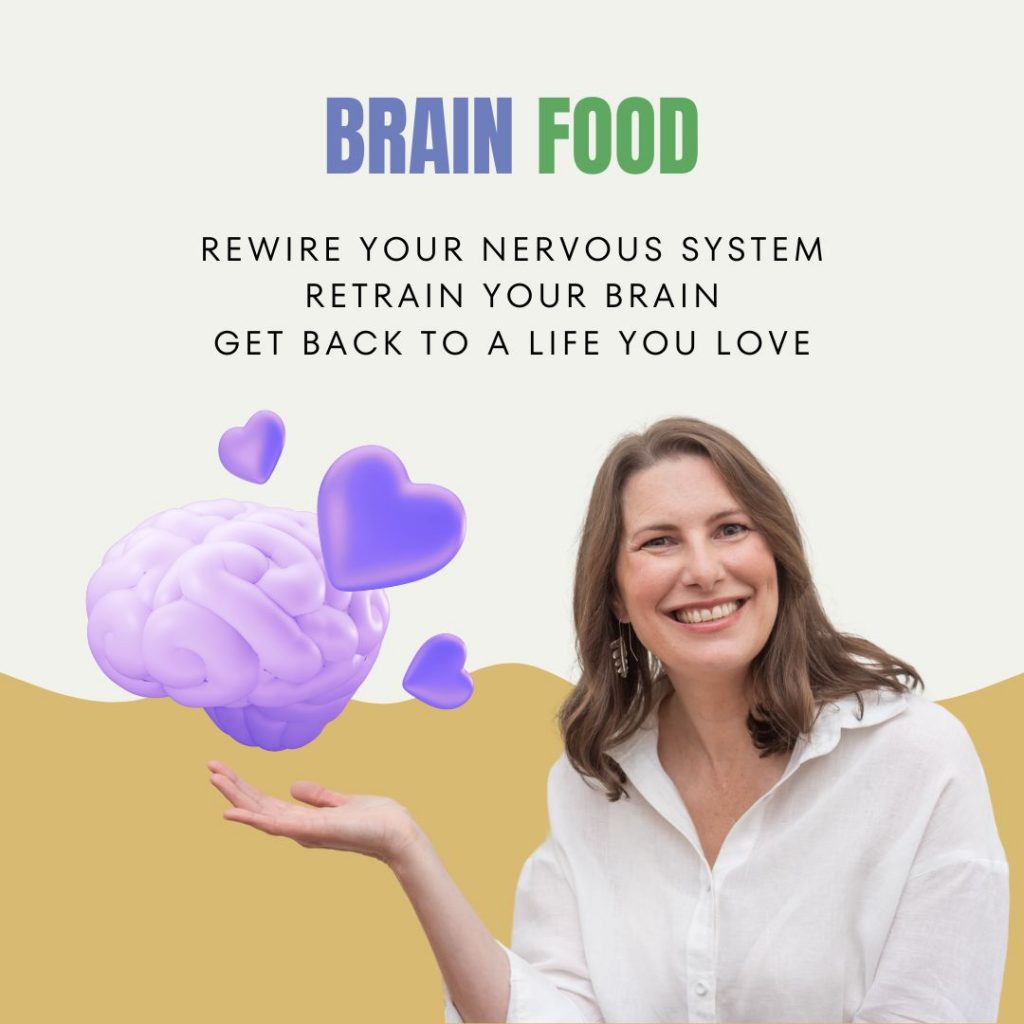The nervous system is central to controlling and coordinating essential functions. The nervous system influences everything you do!
As the body’s communication hub, the nervous system manages movement, sensation, and thought, linking the brain to the rest of the body. Beyond these roles, it impacts our overall well-being, shaping physical, emotional, and mental health.
When stuck in fight, flight, or freeze mode, the nervous system floods the body with stress hormones like cortisol and adrenaline, leading to potential long-term health problems. From the perspective of histamine intolerance, it’s understood that stress can worsen histamine reactions, highlighting the importance of stress management in addressing histamine intolerance.
Understanding the Nervous System
The nervous system can be broadly categorised into two main components:
- The Central Nervous System (CNS): This includes the brain and spinal cord, acting as the control centre for processing information and initiating responses.
- The Peripheral Nervous System (PNS): This system connects the CNS to the rest of the body and is divided into:
- Somatic Nervous System: Governs voluntary movements like walking or speaking.
- Autonomic Nervous System (ANS): Controls involuntary functions like heartbeat, digestion, and breathing. The ANS is split into:
- Sympathetic Nervous System (SNS): The “fight, flight or freeze” system, activated during stress or danger.
- Parasympathetic Nervous System (PNS): The “rest and digest” system, promoting relaxation and recovery.
Nervous System Dysregulation
The fight, flight or freeze response is an essential survival mechanism. When faced with danger, the Sympathetic nervous system (SNS) triggers a cascade of physiological changes: heart rate increases, breathing becomes rapid, and muscles tense, preparing the body to either confront or escape the threat. Simultaneously, stress hormones like cortisol and adrenaline flood the bloodstream, sharpening focus and energy.
While this response is crucial for short-term survival, problems arise when it becomes chronic. In today’s world, threats are less about immediate physical dangers and more about ongoing stressors like work pressures, financial concerns, and relationship conflicts. When the nervous system remains in a heightened state of alert, the body pays a steep price.
Read more about stress and histamine intolerance here.
The Role of Cortisol and Adrenaline
Cortisol and adrenaline are the body’s primary stress hormones, and their release is vital during acute stress. However, their prolonged presence due to chronic stress can wreak havoc:
- Cortisol: This hormone helps regulate metabolism, immune responses, and inflammation. Chronic elevation can suppress the immune system, disrupt digestion, and contribute to weight gain, particularly around the abdomen. It also affects brain health, impairing memory and increasing the risk of anxiety and depression.
- Adrenaline: Known for its role in the immediate “adrenaline rush,” prolonged exposure can lead to cardiovascular issues, including high blood pressure and increased risk of heart disease.
Long-Term Effects of a Dysregulated Nervous System
When the nervous system is stuck in overdrive, the body’s delicate balance – known as homeostasis is disrupted. Here are some ways chronic stress and an overactive Sympathetic nervous system (SNS) can impact health:
Digestive Disorders
- Chronic stress can impair digestion by reducing blood flow to the digestive tract and altering gut motility. Conditions like irritable bowel syndrome (IBS) and acid reflux are often exacerbated by stress. Likewise, histamine intolerance is exacerbated by stress too.
- The gut-brain axis, a bidirectional communication network between the nervous system and the gut, plays a crucial role in digestion and emotional health. Stress can disrupt this axis, contributing to gut inflammation and microbiome imbalances.
Cardiovascular Health
- Prolonged activation of the SNS increases heart rate and blood pressure, placing undue strain on the cardiovascular system. Over time, this can lead to hypertension, arrhythmias, and an increased risk of stroke or heart attack.
Endocrine Imbalances
- The overproduction of cortisol can interfere with other hormonal systems, affecting thyroid function, reproductive health, and blood sugar regulation. This can contribute to conditions like hypothyroidism, menstrual irregularities, and insulin resistance.
Immune Dysfunction
- Chronic stress suppresses immune function, making the body more susceptible to infections and slowing recovery from illness. Additionally, it can exacerbate autoimmune conditions by promoting chronic inflammation. Over-sensitivity to foods and the environment can also be rooted in the influence of the nervous system over the immune system.
Mental Health Impacts
- Anxiety, depression, and burnout are common outcomes of a dysregulated nervous system. Chronic stress alters brain chemistry, reducing levels of serotonin and dopamine, which are essential for mood regulation.
Healing Nervous System Dysregulation:
The good news is that the nervous system is remarkably resilient. With the right strategies, it’s possible to shift from a state of chronic stress to one of balance and restoration. Here are practical ways to support nervous system health:
Prioritize rest and recovery
Engage the parasympathetic nervous system through activities that promote relaxation, such as deep breathing, meditation, and yoga. These practices help lower cortisol levels and encourage a state of calm.
Nutrition for nervous system health
- Incorporate foods rich in B vitamins, magnesium, and omega-3 fatty acids, which support nervous system function.
- Minimize caffeine and sugar, as they can overstimulate the nervous system.
Mind-Body practices
- Techniques like mindfulness, tai chi, and progressive muscle relaxation can improve stress resilience and recalibrate the nervous system. These types of tools plus brain retraining and many more are included in the BrainFood program.
Physical activity
- Regular exercise releases endorphins, natural stress-relievers that enhance mood and support overall health. Choose activities that feel enjoyable and sustainable, such as walking, dancing, or swimming. Read more about exercise and histamine intolerance here.
Establish a sleep routine
- Quality sleep is essential for nervous system repair. Aim for 7-9 hours of restful sleep each night by maintaining a consistent bedtime, reducing screen time before bed, and creating a calming sleep environment. Read more about simple tips for a good night’s sleep here.
Seek connection and support
- Social interactions are a powerful antidote to stress. Share your feelings with trusted friends or family members or consider joining a support group.
Seek professional support
- Healing can be enhanced with the support of a professional, whose expertise can provide tailored guidance and help maximize your progress.
- This is where I can help guide you on this path. Read more about my Brain Food Program here.
The nervous system is more than just a biological network; it’s the foundation of our health and well-being. When the balance between the sympathetic and parasympathetic systems is disrupted by chronic stress, the consequences ripple across the body, affecting physical, emotional, and mental health.
By understanding the profound impact of the nervous system and adopting practices to support its function, we can pave the way for a healthier, more resilient body and mind. Remember, healing nervous system dysregulation is not an overnight process, but with consistent effort and self-care, the body’s innate ability to restore balance can occur. Find out how you can do this using our BrainFood program, with all the tools and support you need to regulate your nervous system and increase your healing.

Stuck dealing with confusing, frustrating and chronic symptoms and can’t seem to figure out why?
Join BrainFood and learn how to use the latest Neuroscience to help your body heal.
Use easy tools to reduce symptoms, calm anxiety, improve sleep, increase tolerance to foods and activities and get better results from treatments.

 Self-Care with Histamine Intolerance
Self-Care with Histamine Intolerance